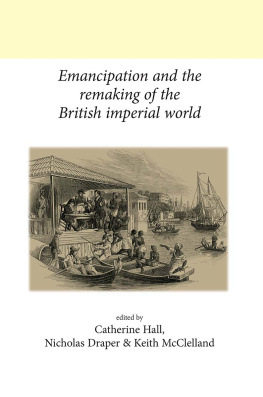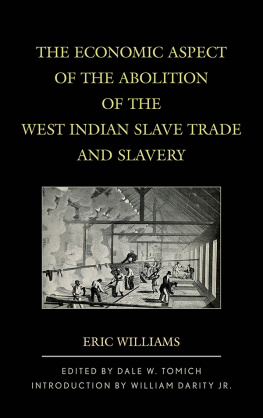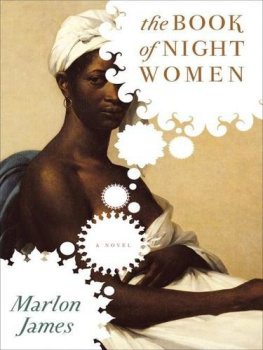
Contents

Thus in England, where law leaves men comparatively free, they are slaves to a grinding despotism of conventionalities, unknown in the land of tyrannical rule. This explains why many men, accustomed to live under despotic governments, feel fettered and enslaved in the so-called free countries.
Sir Richard Francis Burton, 18211890
Great Arabian Explorer
Fifty miles inland from the coast of Abyssinia, Tuesday, 11 June 1833
It is dark when they come, at about an hour before dawn. Far away in London, pretty housemaids in Marylebone are setting the fires while the more dissolute rakes make their way home through deserted streets now devoid of the nights sport. The whores are all abed now as are the Honourable Directors of the East India Company, each to a man concerned that the French, despite being routed, surely have it in mind to capture Bombay, Calcutta and Delhi and unfurl Englands grip on its ruby-encrusted prize. In short order, William Wilberforce, hero of The Cause, will rise habitually early despite his failing health, dress in a sober jacket with dark breeches and, discreetly and behind the scenes, preach the rights of these men and women from thousands of miles away. He has been doing so with success, in and out of Parliament, for the best part of fifty years and he will not have too much longer to wait. But here in the village that makes no difference now.
In the clearing surrounded by lush foliage, the silence is broken and the sleepy huts made of rushes and daub are already being ransacked. There is little anyone can do and it makes no odds whether the families rise fighting, iron daggers in hand, or wake slowly, sleepily, only half-conscious to the screams of their children. One or two of the quickest slip into the darkness, a jumble of long, flaying limbs and flashing eyes, young men abandoning their mothers and sisters, one child with the instincts of a seer, fleeing on instinct alone blindly into the dark jungle and away from the torches and the sparking embers of last nights fire. A pitcher is knocked over in the panic and douses the rising flames, filling the cool, early morning air with a salty cloud of scorched goat curds that were meant to be breakfast.
It takes only seven minutes to capture almost everyone. The slavers are practised at this. They separate the elderly to one side (hardly worth the trouble to transport even as far as Zanzibar) and beat one old man who shouts so furiously and in such a babble that his own wife cannot fully understand him. There is always one would-be hero. He is usually a grandfather. The slaver known as Kasim consigns him to silence.
The broken body quietens the crowd. The villagers shift uneasily and the raiders turn to the task of sorting through the women. This is the most difficult job for mistakes are easily made with these dusky women in the darkness. Abyssinian slave girls are worth a great deal if they are beautiful. Sultans and emirs have been known to take an ebony slave or two to wive a rich mans harim is a place of no borders and should include every colour of skin, after all. White, of course, is the most enticing. Most men have never so much as seen white skin all those who have agree it is strange and unearthly, the skin of a fearsome devil, a soul bleached to the colour of dry bones and shocking to the core, like a spectre. But still, on a woman, desirable enough.
In this village the women are as dark as bitter coffee and their young bodies are lithe. Kasims boyhood friend and business partner, Asaf Ibn Mohammed, eyes the pert titties as if they are liquorice. When he comes to Zena, Ibn Mohammed raises the hem of her winding cloth with the tip of his scimitar and glares at her ripe pudenda. He thinks only of the Marie Theresa dollars that this prize is worth shipped on to Muscat, and how easy she will be to sell. Then, dropping the skirt, he reaches out to check her teeth and nods to his fellow, the one with the ropes.
This one, he says in Arabic, his tawny eyes cold, the contours of his face caught in the flickering lamplight so it appears he is composed of nothing but long, thin lines. Paler and taller than Kasim, Ibn Mohammed has an elegant air and looks more like a scholar than a man of action. Today nothing has riled him the raid is going entirely as he expects, so his temper, which often proves deadly, remains in check. Yes, this one will do. Not as skinny as the others and she shows no fear.
Zena, frozen and so afraid that she is scarcely able to breathe, pretends she cannot understand him. He seems so calm and cold, assured in his right to simply steal her away. Kasim nods silently in agreement though his black eyes sparkle she can see he is enjoying the process of humiliating the villagers as they are assessed one by one. Something in him feeds off the uneasy atmosphere. The raid isnt merely a living for this man. In the trade he has found his vocation.
I will run, she thinks. I will run. But her legs do not move. It is probably a blessing the slavers do not deal kindly when they catch the ones who try to get away. You escape either very quickly or not at all. This is no time for Zena to show her spirit. As the guards pull her out of the line, she stumbles over the corpse of her uncle, the old man she has just watched Kasim murder with his bare hands. Zena does not look at the body. She tries to ignore the outrage that is rising in her belly. Silently, she lets them bind her along with some of the others and then, with the rising sun before them, the slavers drive their spoils, the pick of the village, away from their homes and families forever.
The principal residence of Sir Charles Malcolm, Head of the Bombay Marine, India
The punkawallah has been on duty for over twelve hours and the wafting fan has slowed to a soporific movement that is having little effect on the soupy air.
Feeling better, Pottinger? Sir Charles enquires as he pours them each a drop of dry, ruby port from the Douro.
Oh yes, sir. The fever is gone. Had to be done, I expect, the young man assures his superior brightly, as if he had been serving at the wicket on the village cricket team. For new arrivals, a fever is practically mandatory, though by all accounts Pottinger had a particularly fierce bout and is fortunate to have survived.
Go on then, have a look, Sir Charles motions.
The captain crosses eagerly to the mahogany table and pores over the new charts of the Red Sea that arrived at the dock only a few hours before. The papers represent the first step in the Bombay Marines overall mission in the region, which is twofold. First, to find a way to link Europe to India inside a month by cutting out the African leg of the existing route. If that means developing the market for trade with the Arabs so much the better. Second, to ensure that recent British naval losses on the reefs of the tropical Arabian seas are never repeated. In the scramble for global dominance every scrap of advantage to be had over the French is vital and too many ships have gone down of late due to in adequate maps. For the East India Company these tactics have worked well elsewhere and it is gratifying to Sir Charles that more of the map is coloured pink every year and, in particular, that this victory is in no small measure due to the exploits of his men. It is for this reason that he briefs each of his officers personally at the beginning of their tour of duty. Gives me the measure of them, he says.
Pottinger sees immediately that though the newly arrived drawings are detailed in places, there remain gaps. When will our chaps complete it? he asks.
Next page











